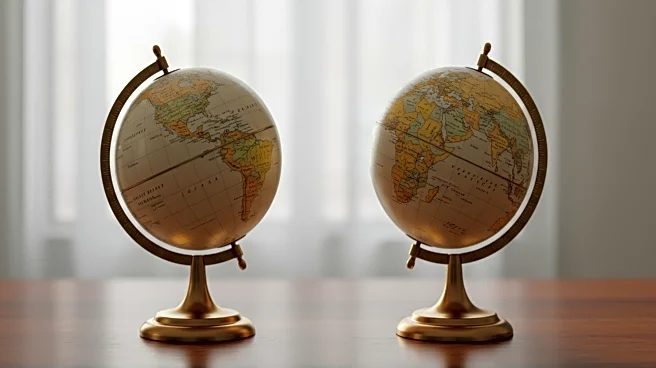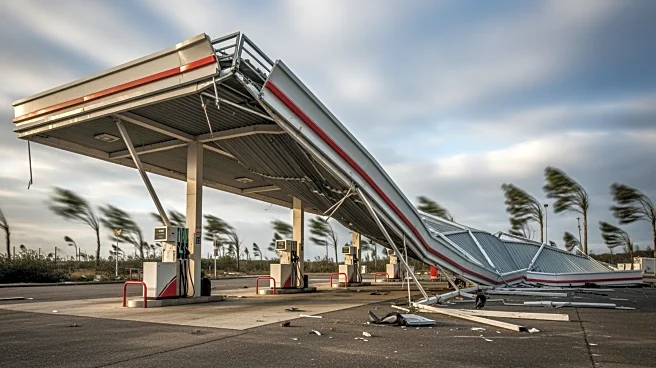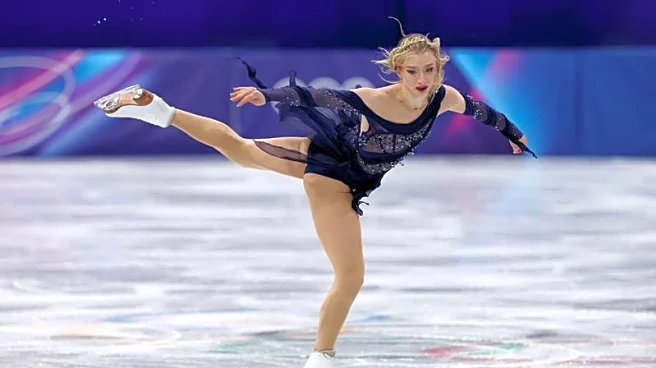What's Happening?
President Trump recently attended a summit in Alaska with Russian President Vladimir Putin, marking Putin's first visit to the United States in a decade. During the summit, Trump appeared to shift his stance from advocating for a ceasefire in Ukraine to supporting a full-fledged peace agreement, aligning with a long-held Kremlin position. This change comes after months of pushing for a ceasefire, which Ukraine and its allies had insisted was necessary for peace talks. The summit, described as a spectacle, saw Trump warmly greeting Putin, despite the International Criminal Court's arrest warrant against Putin for war crimes. The meeting did not result in a deal to end the war in Ukraine, but it did provide Putin with a platform to break out of international isolation.
Why It's Important?
The shift in President Trump's stance has significant implications for U.S.-Russia relations and the ongoing conflict in Ukraine. By echoing the Kremlin's position, Trump may be perceived as undermining Ukraine's efforts to resist Russian aggression and territorial claims. This development could alter the dynamics of international diplomacy, potentially easing pressure on Russia to end the war. The summit's outcome is seen as a diplomatic victory for Putin, allowing Russian forces more time to make territorial gains. Trump's approach may also impact U.S. foreign policy, as it suggests a willingness to negotiate directly with Russia, potentially sidelining European allies and Ukraine.
What's Next?
Following the summit, President Trump is expected to meet with Ukraine's President Volodymyr Zelenskyy at the White House. Discussions may include the possibility of a trilateral summit with Putin, although the Kremlin has indicated that such a meeting would only occur in the final stages of peace talks. Trump's shift in responsibility towards Kyiv and Europe suggests that he may pressure Zelenskyy to negotiate with Putin. The ongoing conflict in Ukraine continues, with Russian forces making incremental advances. The international community will be watching closely to see if Trump's new approach leads to any tangible progress towards peace.
Beyond the Headlines
The Alaska summit highlights the complex interplay of international diplomacy, where personal relationships between leaders can influence geopolitical outcomes. Trump's warm reception of Putin, despite the ICC's arrest warrant, raises ethical questions about the prioritization of diplomatic relations over accountability for alleged war crimes. The summit also underscores the challenges faced by Ukraine in maintaining international support while navigating pressure from major powers. The long-term implications of Trump's stance could affect U.S. credibility and its role as a mediator in global conflicts.










